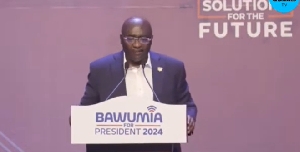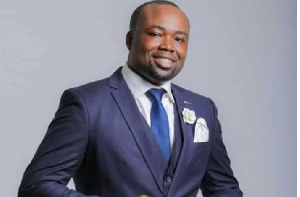As the political landscape in Ghana gears up for the 2024 elections, Dr. Mahamudu Bawumia finds himself under scrutiny for what some perceive as poor and elitist policies, coupled with an attempt to distance himself from the failures of the Nana Addo-led government.
The Vice President's recent speech has raised questions about the consistency of the ruling party's approach and its responsiveness to the needs of the majority.
Dr. Bawumia's criticism of former President Mahama should not come at the expense of acknowledging the achievements and challenges faced by the NPP during its tenure. The global economic downturn of 2020 hit even the most stable economies, and for a leader to effectively address the concerns of Ghanaians, a transparent discussion of these challenges is imperative.
Wednesday's speech by Dr. Bawumia seems to mark a departure from the established policies of the Nana Addo-led government. While he champions the success of the digital revolution, there are opposing views from the opposition, highlighting the need for open debates to clarify the government's stance.
The Vice President must strike a balance between defending achievements and acknowledging shortcomings, displaying a commitment to transparency.
One of the primary concerns surrounding Dr. Bawumia's policies is their perceived elitist nature. Initiatives such as the electric bus service and payment cards have been criticized for catering primarily to the affluent minority.
With many households struggling for sufficient electrification and inadequate industrial capacity, the Vice President must address the pressing needs of the majority.
For Dr. Bawumia's electric bus service to be a tangible reality, a laser focus on increasing Ghana's power generation capacity is crucial. Addressing the broader issues of electrification and industrial growth should take precedence over policies that benefit only a fraction of the population.
Critics argue that Dr. Bawumia's image is skewed more towards an IT professional than an economist. To dispel this perception, he must articulate comprehensive economic strategies that uplift the nation. Ghanaians are eager to see policies that address the daily struggles of households and provide a robust foundation for national economic growth.
Former President John Mahama has been adept at highlighting the failures of the current government, underscoring the woes faced by Ghana and its citizens. Dr. Bawumia must respond with a clear vision that goes beyond elitist policies, demonstrating a genuine commitment to uplifting the nation as a whole.
In the coming months, as the campaign intensifies, Dr. Bawumia has an opportunity to revisit and refine his policies. By engaging Ghanaians with transparency, addressing economic challenges, and prioritizing the needs of the majority, he can reshape his image and present a compelling case for the NPP in the 2024 elections.
The electorate awaits a leader who can bridge the gap between policies and the realities faced by everyday Ghanaians.
Opinions of Saturday, 10 February 2024
Columnist: Ken Braimah



















